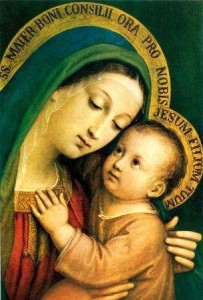 More often than not regarded as John of the fallen cross – the scribe is a convert to Catholicism whose life was forever reformed by deciding to follow Christ and asking God to make him into the man he could not find. And although the experience of seeking the Kingdom of God – losing all to gain all – is not the most popular means towards personal sanctity, it is beyond doubt the safest and surest path to walk efficiently closer in knowing God’s Holy Will. As all are called to be watchmen, we must first become aware of our own faults with the memory of sin ever before us in order to speak with alarm that although our sins (when forgiven) may dissipate as snow, when habitual and/or serious become as white as wool. Be forewarned then, that the mantle of sin remains an indelible burden and is cause for alarming concern to assist others who may share similar yokes visibly close to despair.
More often than not regarded as John of the fallen cross – the scribe is a convert to Catholicism whose life was forever reformed by deciding to follow Christ and asking God to make him into the man he could not find. And although the experience of seeking the Kingdom of God – losing all to gain all – is not the most popular means towards personal sanctity, it is beyond doubt the safest and surest path to walk efficiently closer in knowing God’s Holy Will. As all are called to be watchmen, we must first become aware of our own faults with the memory of sin ever before us in order to speak with alarm that although our sins (when forgiven) may dissipate as snow, when habitual and/or serious become as white as wool. Be forewarned then, that the mantle of sin remains an indelible burden and is cause for alarming concern to assist others who may share similar yokes visibly close to despair.
![]() The surest path our Church teaches to prosper in truth is penance, alms-giving, and prayer. The severest is by following the general counsels and mystical instruction of Christ and St. John of the Cross; of learning to identify the details of the battles to be fought taught by St. Teresa of Avila; and the perfectly constructive practice of St. Thérèse of Lisieux’s ‘little way’ by adhering to her exemplary lesson and habitual remembrance to offer all of our thoughts, words, and deeds of every second, of every day, of every month, of every year, for the love of God through perpetual offerings as/in prayer.
The surest path our Church teaches to prosper in truth is penance, alms-giving, and prayer. The severest is by following the general counsels and mystical instruction of Christ and St. John of the Cross; of learning to identify the details of the battles to be fought taught by St. Teresa of Avila; and the perfectly constructive practice of St. Thérèse of Lisieux’s ‘little way’ by adhering to her exemplary lesson and habitual remembrance to offer all of our thoughts, words, and deeds of every second, of every day, of every month, of every year, for the love of God through perpetual offerings as/in prayer.
While this may seem harsh by those who love us the way we are, be forewarned that this transformational process invites jealous wrath when God begins to replace our human love with Himself. Most people feel threatened and dislike sharing what was once reserved for themselves when selfishly referred as “their” love. Thus the wise man seeks to love God first, for it does not help to plead for patience or compassion to ease this distress by asking anyone to explain what part of the requirement to love God with one’s whole heart, soul, mind, and strength allows place for human love to remain first. It is difficult to discern how or why pride is inflamed with such vehemence if lamenting the experience of poor treatment from those whom we love that develops into discomforting unpleasantness.
 Suffice it being enough to know that an inordinate love of/for self is the most common cause for our aversion of conversion in seeking God. And yet when true love is found in God, especially when approached through the Mother of God’s Son, loving our neighbor as our self – especially in the image of Mary’s devotion to Christ – is when we truly demonstrate love and initially begin to serve Him well.
Suffice it being enough to know that an inordinate love of/for self is the most common cause for our aversion of conversion in seeking God. And yet when true love is found in God, especially when approached through the Mother of God’s Son, loving our neighbor as our self – especially in the image of Mary’s devotion to Christ – is when we truly demonstrate love and initially begin to serve Him well.
The exultation of the soul is loving God as/for Himself and acquiring this resignation to the glory of God is when we pass life’s hardships as tests the best.
With all that is gained in the process to know, love, and serve God above all else eventually becomes an active and holy obligation to share this Good News of the Lord to all who are seeking God or who are in distress. This is offered to every sinner being weaned from corruption through the life, death and resurrection of Jesus Christ by the refreshing view of Mary’s Immaculate Heart. The humility of Mary when she answered God’s call saying: “Behold the handmaid of the Lord; be it done to me according to thy word” [Luke 1:38] was after her initial reaction in fear of the Lord. We then witness her advancement in piety with her first recorded words to God’s Son when finding Him in the Temple asking: “Son, why hast Thou done so to us? Behold, Thy father and I have sought Thee sorrowing.” [Luke 2:48], bearing an important truth for us throughout – that Mary learned from her son – much the same as we too must do.
 In understanding Our Blessed Mother’s desire for humanity to hear and witness God’s love within her Son in loving belief that it is possible and necessary for them as well, it must be retold that from a constant interior joy and a certain degree of God’s suffering love within is why we are obligated to acknowledge – as Our Lady of Mount Olive steadfastly implores – the greatest honor in life is to pay homage to the Lord Jesus Christ as King and Sovereign Priest… just as He encouraged us to listen to Him when saying: “Take up my yoke upon you, and learn of me, because I am meek, and humble of heart: and you shall find rest to your souls. For my yoke is sweet and my burden light.” [Matthew 11:29-30]
In understanding Our Blessed Mother’s desire for humanity to hear and witness God’s love within her Son in loving belief that it is possible and necessary for them as well, it must be retold that from a constant interior joy and a certain degree of God’s suffering love within is why we are obligated to acknowledge – as Our Lady of Mount Olive steadfastly implores – the greatest honor in life is to pay homage to the Lord Jesus Christ as King and Sovereign Priest… just as He encouraged us to listen to Him when saying: “Take up my yoke upon you, and learn of me, because I am meek, and humble of heart: and you shall find rest to your souls. For my yoke is sweet and my burden light.” [Matthew 11:29-30]
When Our Lady of Good Counsel spoke next at the Wedding Feast, she said: “Whatsoever he shall say to you, do ye.” [John 2:5] In response to this truth from Our Lord’s instructions we become emboldened to say: “Confitebor tibi, Domine. I Will give praise to thee, O Lord, with my whole heart: I will relate all thy wonders. I will be glad and rejoice in thee: I will sing to thy name, O thou most high.” [Psalm 9:1-2]
 Given this delight, it is a very good thing to understand that these meditations are as Our Lord’s seamless garment; clothing us in sanctifying fruition by ordinary infusion of grace through the sacramental powers of Baptism, Confirmation and frequent (if not daily) reception of Holy Eucharist. Combined with continual use of the Sacrament of Penance and Reconciliation when finding fault in offense to God, this path is an ordinary and proven one led and followed by many recognized saints who came before us explaining their travails towards the sanctification of their souls. From this truth, we who look to accomplish the same can be assured these meditations will direct us to the transformation of our souls in the grace of God’s redounding love – alone with Him, now residing within.
Given this delight, it is a very good thing to understand that these meditations are as Our Lord’s seamless garment; clothing us in sanctifying fruition by ordinary infusion of grace through the sacramental powers of Baptism, Confirmation and frequent (if not daily) reception of Holy Eucharist. Combined with continual use of the Sacrament of Penance and Reconciliation when finding fault in offense to God, this path is an ordinary and proven one led and followed by many recognized saints who came before us explaining their travails towards the sanctification of their souls. From this truth, we who look to accomplish the same can be assured these meditations will direct us to the transformation of our souls in the grace of God’s redounding love – alone with Him, now residing within.
These meditations are not the result of locutions, visions, or any other supernatural means aside from the ordinary gifts of grace (which in themselves are extraordinary; as the work of God in man through participation is regarded by God as an ordinary act to love Him above all else in the image of His Beloved Son, Jesus Christ) which is ordinarily possible for everyone to attain through the compassionate understanding of His (and Our Lady’s) Sacred Heart. Our proof for this is found in the very first recorded Holy Words spoken by Jesus in response to His Mother’s question, saying: “How is it that you sought Me? Did you not know that I must be about My Father’s business?” [Luke 2:49] Of this truth, could anything said be more clear as to the good reason for listening and following Him?
 Simply said, these meditations help us to arrive at recognizable needs for others in what is good for ourselves, and in mirror image; what is lacking in others is lacking in ourselves, thus; what is gained for others is gained for ourselves. This easily suggests that by lifting each others’ cross without favors due, is a very good thing in faith, hope, and charity for all (as of old) in witness of Our Lord’s commandment of love is for each of us to do. By living our faith in loving God with our whole heart, soul, mind, and strength, and loving our neighbor as self in the image of Jesus Christ, we are cooperatively being healed, especially coupled with these vocal, meditative, and contemplative prayers together in use, two by two, through Mary’s view.
Simply said, these meditations help us to arrive at recognizable needs for others in what is good for ourselves, and in mirror image; what is lacking in others is lacking in ourselves, thus; what is gained for others is gained for ourselves. This easily suggests that by lifting each others’ cross without favors due, is a very good thing in faith, hope, and charity for all (as of old) in witness of Our Lord’s commandment of love is for each of us to do. By living our faith in loving God with our whole heart, soul, mind, and strength, and loving our neighbor as self in the image of Jesus Christ, we are cooperatively being healed, especially coupled with these vocal, meditative, and contemplative prayers together in use, two by two, through Mary’s view.
And as such, for anyone who is seeking formation in truth through simple reason, these meditations encourage a very trustworthy belief in Jesus Christ through the examples of the Holy Family originating at the dawn of Creation and fashioned in Mary’s Immaculate Heart – the perfection of creation; the Immaculate Conception chosen to present Our Lord.
Especially demonstrating how faith, hope, and charity are born from following Old and New Testament Church Councils in our search for God, holy reflection of the example of Mary’s love of her Son as Our Lord and Savior, Jesus Christ, they accentuate the historical living trust found in scriptures, tradition, and the holy Magisterium of Christ’s One, Holy, Catholic, and living Apostolic Church that is perpetually glorified in Christ’s Church every day of the week and especially every year during Holy Week.
 One can easily say that contemplation of these meditations are a very helpful way in mainstay of our faith to pray and sustain ourselves between masses in wonderful contemplation of the creative Handiwork of God, each and every day of the week through continual reflection on the love of God within His Holy Family.
One can easily say that contemplation of these meditations are a very helpful way in mainstay of our faith to pray and sustain ourselves between masses in wonderful contemplation of the creative Handiwork of God, each and every day of the week through continual reflection on the love of God within His Holy Family.
By God’s grace may the contemplation of these sacred mysteries continually assist us to foster holy families through holy matrimony, two by two, male and female in the image of God through husband and wife, and by the example given through Joseph and Mary of the natural growth of the Holy Infant Jesus, become the holy foundation for vocations to the priesthood and religious life – long before marriage is considered, begun or initially understood.
Amen, amen; Amen indeed!

Please contact me. I love the work you have put into this and would love to speak with you about the work you have done with the Holy Family Rosary.